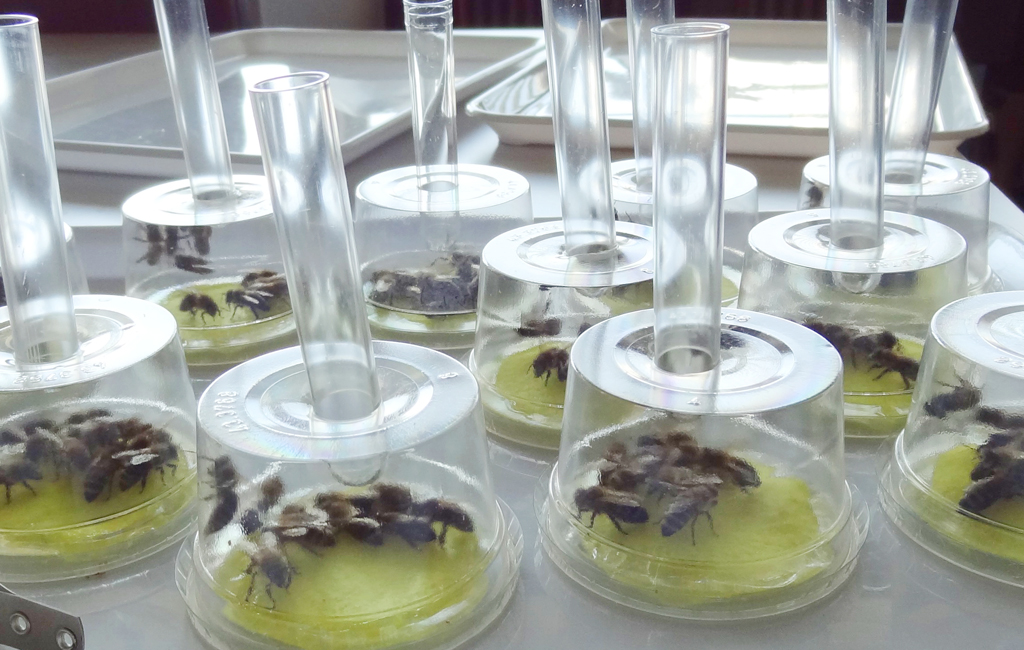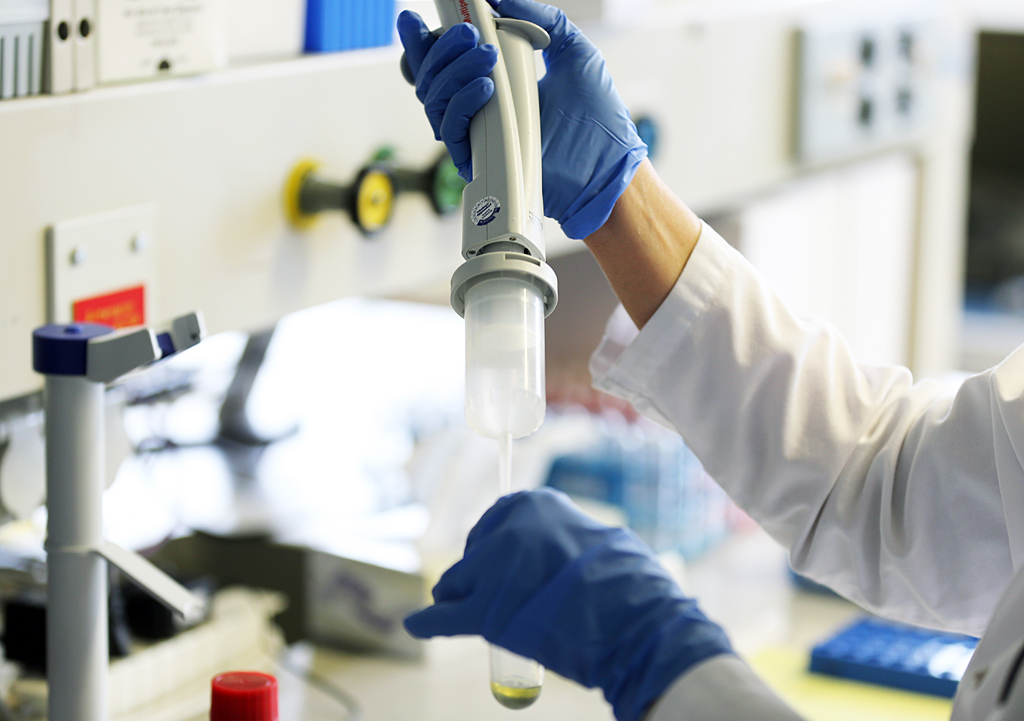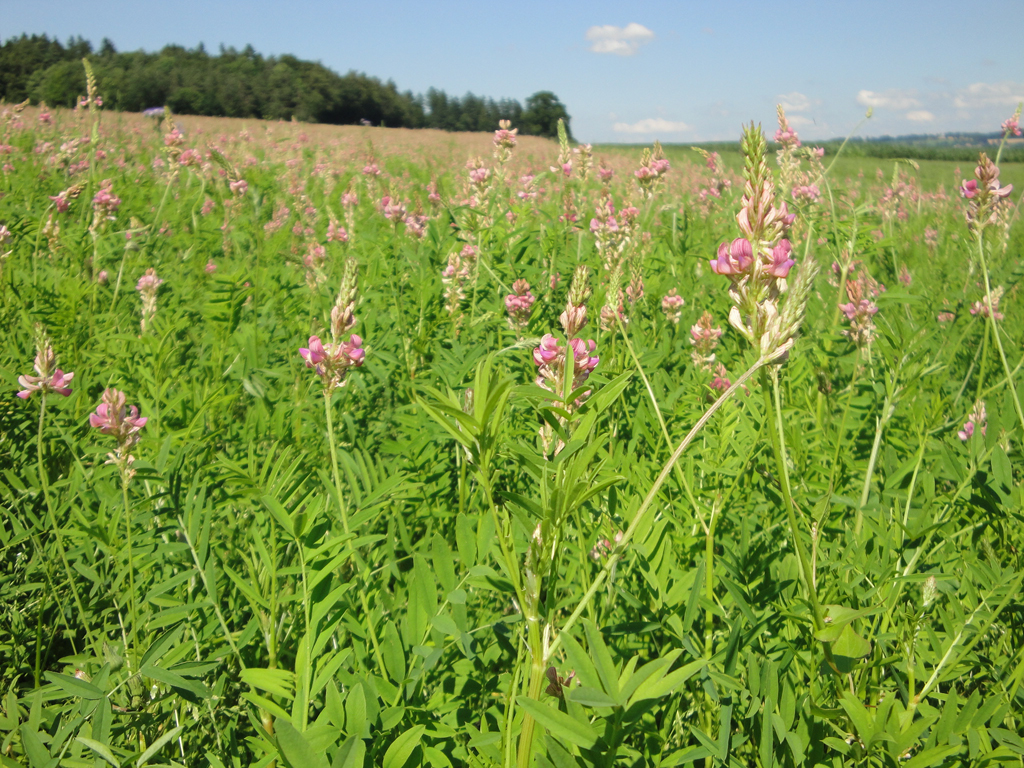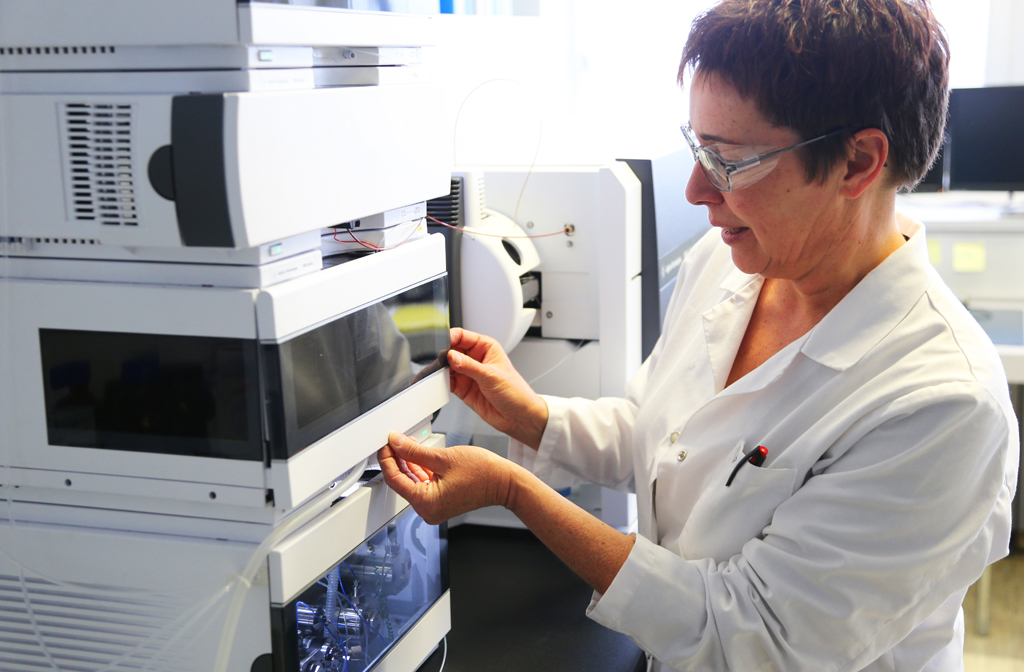Web: The LegumePlus Project
Risk Assessment of Pesticides for Bees

In spring 2014, the Swiss Federal Council adopted a national action plan for bee health, introducing measures for improving the availability of nectar and pollen plants and for the risk assessment of plant-protection products (PPP). As part of the PPP authorisation process, the Bee Research Centre assesses the hazard of the pesticides for honey bee. Further tasks are the performance of international interlaboratory trials and cooperation in solving cases of bee poisoning.
Pork-Fat Quality Re-evaluated

In 2014 the entire pig industry underwent a system change to a more precise method of evaluating fat quality in pig carcasses. Since 1 July this has involved the determination of fatty-acid composition and the iodine value by means of near-infrared spectroscopy. New limit values were developed which necessitated an overhaul of the feed recommendations for pigs by Agroscope, which hosts the reference laboratory for pork-fat quality.
LegumePlus: Targeting Bioactive Substances

Certain fodder legumes such as sainfoin and birdsfoot trefoil contain bioactive constituents that optimise protein use in ruminant nutrition, reduce methane gas emissions, control parasitic worms, and improve the quality of foods from ruminants. The LegumePlus Project which conducts research in these areas ends in 2015, and its findings are eagerly awaited. Further projects with European partners are planned.
Tracing Impurities in Feed

The coupling of liquid chromatography with tandem mass spectrometry (LC-MS/MS) is an analytical technique enabling the separation and determination of molecules. Since the beginning of 2014, Agroscope Posieux’s Feed Analytics Group has been working with a new triple quadrupole LC-MS/MS device. The aim is to simultaneously identify several unauthorised substances in feed, quickly and precisely. Specifically, for e.g. antibiotics, the device can detect traces from 0.000003 grams per kilogram upwards.





